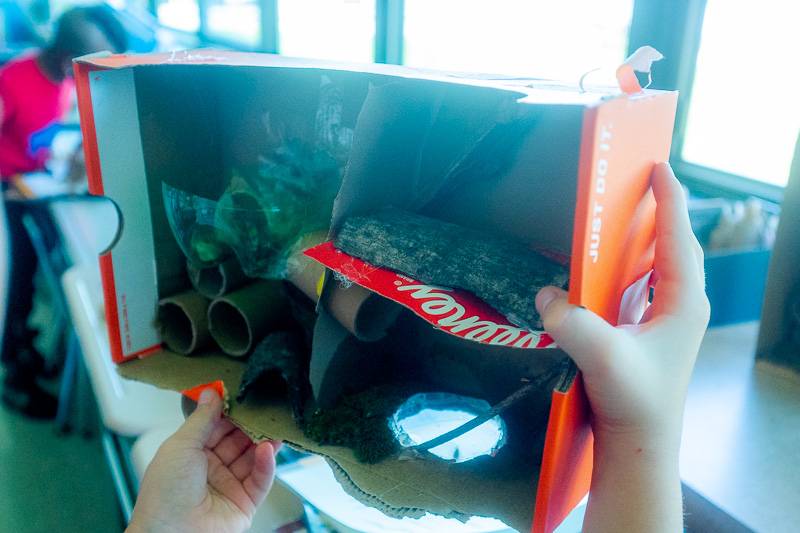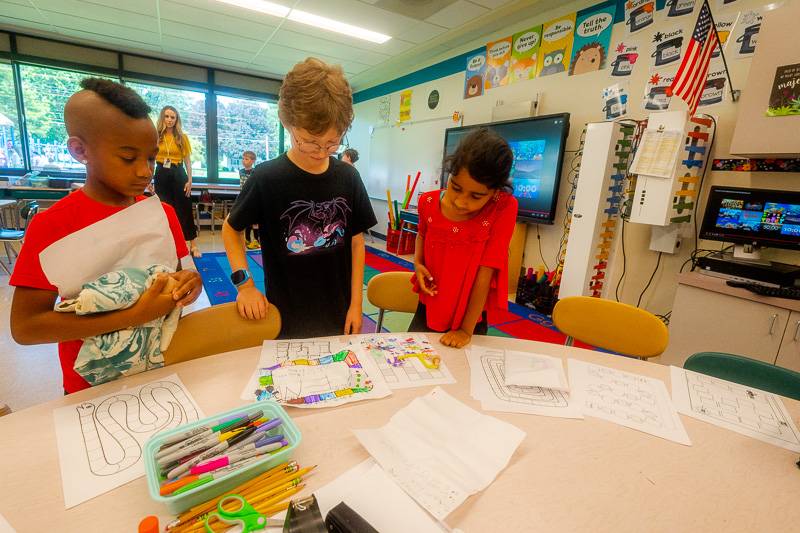
Photo by Howard Owens.
First-time business owner Ember Arend enjoyed the prospects of running a fish ’n chip shop in Batavia, she said, thought there were plenty of lessons to learn before finding success.
First, she would have to price her meals something more reasonable to turn a profit.
“I had my fish listed for $1 or $2 and had to put it up to $13 to make some money,” the 10-year-old said at John Kennedy Intermediate School. “And an employee wanted to sell burgers, and I said no, I’m lowering your payment because you said we’re selling burgers.”
Perhaps that’s why the soon-to-be fifth-grader said that the nature class was her favorite: she only dealt with toads.
Ember is one of 45 children who participated in Batavia City School District’s inaugural 21st Century innovation camp this summer that ran along with summer school.
Meant to be a “nurturing, fun environment,” the five-day per week program offered three different courses: nature and exploration, building and engineering, and music and drama.
The 21st Century program is grant-based and offered through the state Education Department by application.
“We applied because we wanted to have more opportunities for kids outside of the school day,” said Dr. Molly Corey, executive director of curriculum and instruction. "And it was nice the 21st Century allowed us to expand summer programming to include additional things, fun things, for kids to do in a structured environment after the extended day programming.”
Rather than a set content that is done during the school year, this is considered to be more of an “enrichment program,” teacher Alyssa Elliott said.
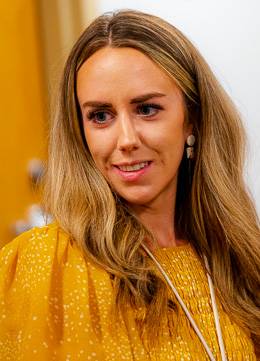
“So within those three areas, the teachers have been setting up fun, different prompts. Today in the building room, they were creating a Ferris wheel and cars, and in the nature room, they were creating bug hotels with natural materials. And in the music and drama room today, they were creating board games,” Elliott said. “So they set up those prompts and see what the students do with it and ask them questions to get them to explore their interests even further. Or there's a student that is really interested in building, and they're in there, and they come up with another idea that teachers just run with it and help them explore their curiosities and what they're interested in and try to connect it back to the academic content as much as possible, but it's more of like an open-ended exploration.”
There’s an extended day-school violence grant that “allows us to do after-school activities for at-risk students, Corey said, and the 21st Century program is open to all students.
“So we really wanted to expand based on interest,” she said. “After this summer, we’ll open it, technically it could be for K through 12. But we just did it this year, we started small with one site. But our intent is to expand it in all schools for after school in the fall and next summer.”
The grant program is for five years, and according to the state Education Department’s website, the grant is for $228,393.
Considering it’s summertime and most of the kids have been making it to school every day, that might say something about the program’s success so far.
Augustus Rojo-Hallock has been having so much fun, he was going to be sad when it ends on Friday, he said.
“I’ll wait to next year for summer school to come back again,” the eight-year-old said while showing his partially crafted Ferris wheel. “This can spin by itself.”
While it may sound merely like fun and games, there’s more to the projects, Elliott said.
“They had to be able to look at the pictures of the directions and read the words and problem solve. If something wasn't working, we had to figure out what they did incorrectly and how they can improve and personally persevere through solving it because it was really tricky,” she said. “And then with the bug hotels is the same kind of problem-solving skills, trying to design something and seeing what works and what doesn't. And then the board games, they were doing a lot of writing and thinking ahead …”
Augustus named building and engineering as his favorite space because “it does a lot of fun things,” including the Lego boat, magnet and milk carton car that he got to make by himself.
Logan Oxencis and Lavanya Main explained how they created a board game, they titled “The Game That Never Ends (until after 20 rounds),” complete with handmade dice and board pieces.
Logan, going into fourth grade, made a diamond card, helicopter, motorcycle, and Superman, using bright colors for each.
“This is a little challenging,” he said. “I decided to put in some color and make it not dull. And the dice is colorful, so it’s not boring.”
They also drafted rules, which began with no cheating. That seemed to be a common starting point, as nine-year-old Mira Ferrando’s Candy Planet game also began with “Don’t Cheat!” And ended with “Don’t Quit and Have Fun.”
Did they ever hit a point where they weren’t sure what to do?
“Some parts I didn’t know what to do,” eight-year-old Lavanya said. “I just figured out what to do, I figured it out in my mind.”
Over at nature and exploration, Lucas Norman had “the most fun,” he said, building a bug hotel out of outdoor debris and household goods — leaves, moss, toilet paper rolls, part of a plastic pop bottle and a shoe box, to name a few items.
And, of course, there was one other important reason.
“Because we got to explore outside, and we got to see a toad,” he said.
The 21st Century camp ran for five weeks as one of several district extended-year programs, including acceleration camps, SOAR, math and literacy camps, and My Brother’s Keeper.
After COVID’s social distancing separated kids from the school environment, teachers and their classmates for so long, many educators had noticed setbacks in student learning. The Batavian asked how these students are doing now.
“I think one of the biggest things from COVID was the social-emotional piece. And I think that's one thing that the summer programs really helped with, just interacting with other kids and doing group work, and even just coming in school and having those conversations with teachers,” Elliott said. “And so I think that's a really important piece that the summer programs helped to address and something that I saw kids struggle a little bit with after being gone for so long. And I also see some improvement in mathematics if I know that they were at summer school.”
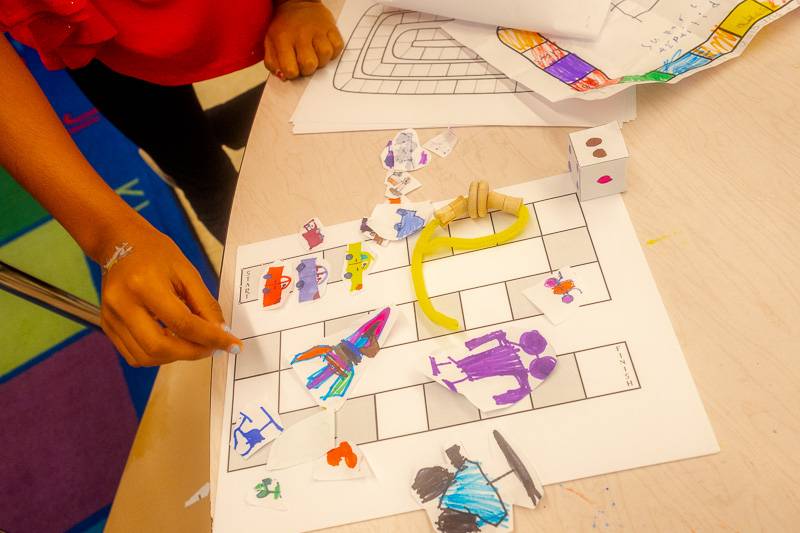
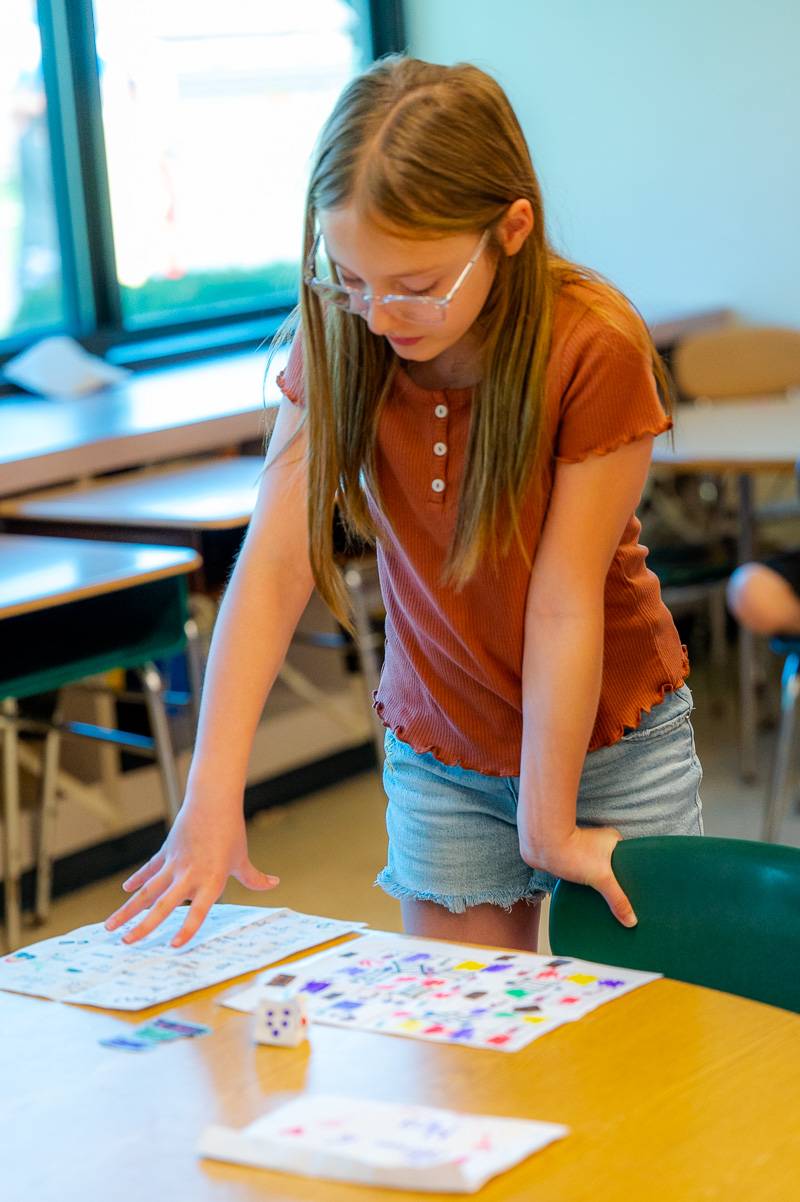
Photo by Howard Owens.
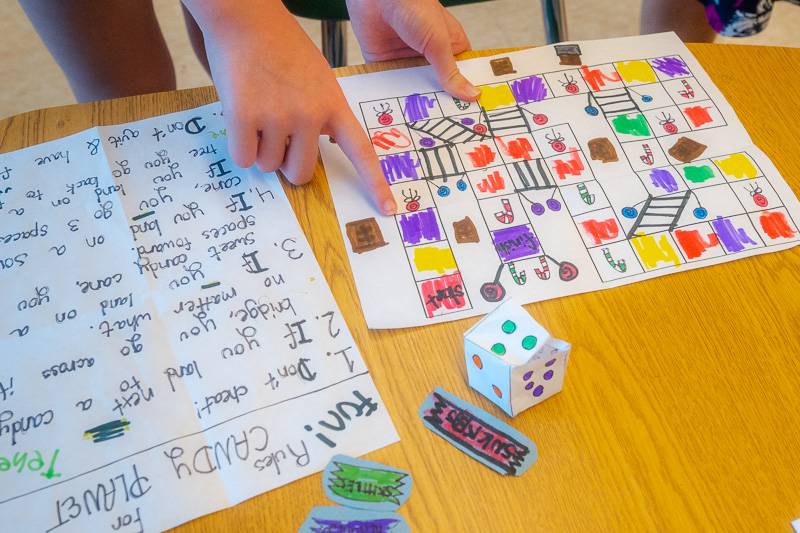
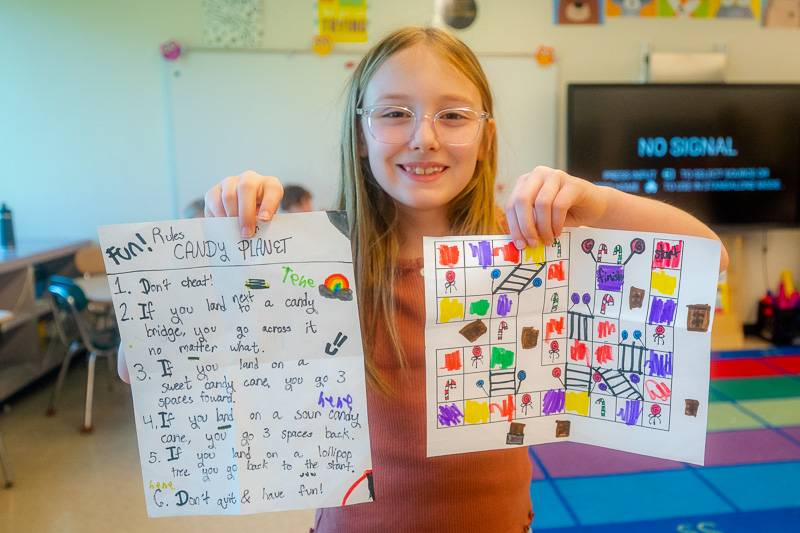
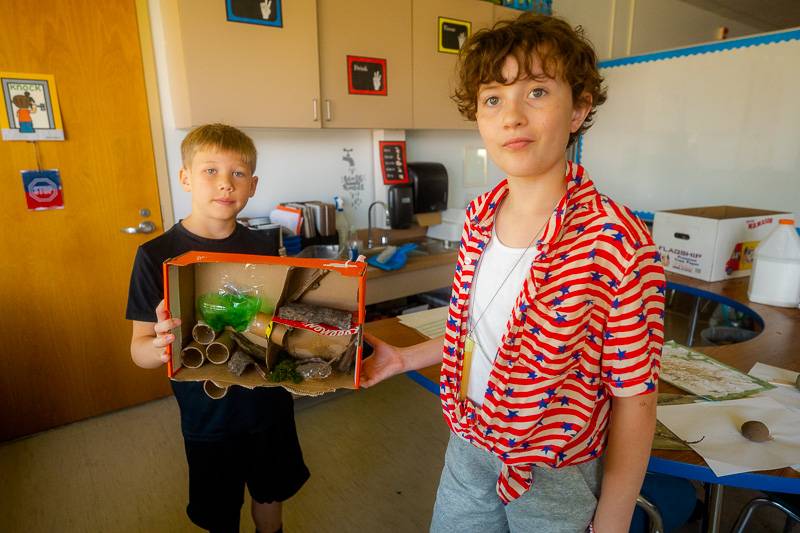
Photo by Howard Owens.
